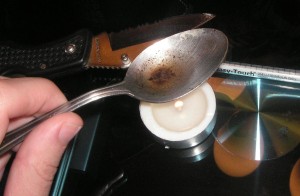But at that moment, Anthony Jordan, who the authorities say was a gang enforcer known as “Godfather,” was spraying gunfire on the street outside, and two bullets struck Ms. Walker, killing her.
“St. Louis is a dangerous place right now,” Johnny Barnes, Ms. Walker’s longtime boyfriend, said during a recent interview. “It’s all around us.”
The death of Ms. Walker was linked by the authorities to a violent St. Louis street gang with ties to a Mexican drug cartel that in the past has supplied marijuana and cocaine throughout the Midwest. In recent years, however, Mexican traffickers have inundated the St. Louis area with a new, potent form of heroin, drastically reducing prices for the drug and increasing its strength to attract suburban users.
The dispersal of the cheap heroin has led to a surge in overdoses, addiction and violence in cities across the country.
Besides St. Louis – where the problem is particularly acute – Chicago, Baltimore, Milwaukee and Philadelphia have attributed recent spikes in homicides in part to an increase in the trafficking of low-cost heroin by Mexican cartels working with local gangs.

